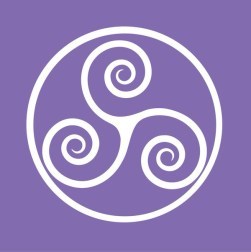How to Find UsBurkitt Ward is located on Level 3 in the Hospital. The easiest way to get there is to go through the main hospital entrance to the lifts in the main foyer. Take the lift to Level 3 and follow the signs for the Burkitt Ward. |
Description of Burkitt WardBurkitt ward specialises in care of the Older person and their rehabilitation. Its focus is providing high quality, person centred care. We use a multidisciplinary team approach in the provision of holistic care. This ensures early intervention from Physiotherapy, Speech & Language therapy, Occupational therapy, Dieticians and more. This approach aids us in achieving optimal outcomes for our patients and promoting their independence.
Located on the third floor, there are 29 beds on the ward. It also has a physio gym to help with a patient’s rehabilitation. Additional supports available on Burkitt are that of the Falls Nurse Specialists, the Advanced Nurse practitioner and Clinical Nurse Specialist.
The Burkitt Ward is named after Denis Burkitt, a student of the Adelaide Hospital who qualified in 1935 and became house surgeon. Burkitt went on to work for the Royal Army Medical Corps in Kenya and Ceylon. He was later accepted for colonial service and posted to Uganda where he identified “Burkitt’s Lymphoma” (jaw tumours). In the 1970's he identified ‘diseases of civilisation’ - caused by diet - and promoted the importance of fibre in the diet. |
Pastoral Care Pastoral available to all patients. Chaplain routinely visit the ward. Nurses can also arrange for a member of the Pastoral Care Team to visit any patient as required. |
The TeamThe team on Burkitt consists of age-related doctors, age related clinical psychologists, nurses, healthcare assistants, physiotherapists, occupational therapists, pharmacists, dietitians, speech & language therapists and medical social workers. We work collaboratively to achieve the patients goal while ensuring their safety and promoting their independence. |
Visiting GuidelinesVisitors are regarded as an important part of the patient's day and are very welcome at TUH. Please note Patient safety is our number one priority. We have strict policies on infection prevention & control which apply to everyone: staff, patients and visitors. We would ask all visitors observe the following: - Only two visitors are allowed to visit at any one time
- If you are suffering from cold, flu, fever, vomiting or diarrhoea visitors are asked not to visit to prevent bringing infection from the community into the hospital.
- Tallaght University hospital is a no smoking hospital that includes e-cigarettes. Please use designated smoking area.
- If bringing food into the patient, please ensure to check with the nurse- This is to reduce risk of food contamination and patients may be on restricted/ modified diet.
- Visiting during mealtimes is not permitted. This is to prevent distractions or interruptions during their meal as good nutrition is essential to their recovery. Exceptions to this rule can be made if assisting a relative.
We would ask all visitors to be respectful to the staff members and patients when visiting.
 If you see this symbol when visiting the wards please be aware of its importance. This spiral symbol means that a patient is imminently dying or has died. We would ask all visitors to be respectful and avoid mobile phone use and to be prepared to meet people who are grieving during your time on the ward. If you see this symbol when visiting the wards please be aware of its importance. This spiral symbol means that a patient is imminently dying or has died. We would ask all visitors to be respectful and avoid mobile phone use and to be prepared to meet people who are grieving during your time on the ward. |
ValuablesWe advise all patients not to bring valuables with you during an admission i.e. cash or jewellery. The Hospital is not responsible for patients’ valuables, if kept by the patient. |